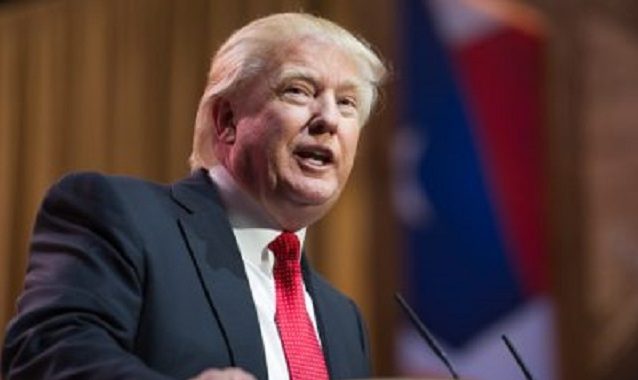 President Donald Trump just can’t help himself when it comes to the media. On Wednesday morning in a tweet, he once again encouraged that we change America’s libel laws. The latest tweet outburst was also accompanied with a link to an opinion piece from The New York Post lambasting The Times’ reporting on the Trump/Obama wiretapping deal.
President Donald Trump just can’t help himself when it comes to the media. On Wednesday morning in a tweet, he once again encouraged that we change America’s libel laws. The latest tweet outburst was also accompanied with a link to an opinion piece from The New York Post lambasting The Times’ reporting on the Trump/Obama wiretapping deal.
The failing @nytimes has disgraced the media world. Gotten me wrong for two solid years. Change libel laws? https://t.co/QIqLgvYLLi
— Donald J. Trump (@realDonaldTrump) March 30, 2017
During the campaign, Trump harped on this same theme over and over again. Last March, he told a crowd that when he is President he will “open up our libel laws so when they write purposely negative and horrible and false articles, we can sue them and win lots of money.” Despite a little backtracking earlier this year, Trump has remained pretty consistent about wanting to make it easier to hold media organizations accountable for what he considers to be “false” stories. But there are two reasons why Trump can’t actually change the libel laws in any meaningful way. At least not by himself, or through the power of the presidency. 1) Because libel laws are different in every state. States — NOT the federal government — are mostly responsible for governing that area of the law. In fact, case law and precedents surrounding defamation are different from state to state. 2) The Supreme Court is not on his side.
For example, in New York, defamation/libel is guided by one case while in Florida a different law exists. And while most of the requirements from state to state are similar– there are some noted differences. Trump would have a tough time in Florida getting a lot of money, because as the Digital Media Law Project points out, the Florida Supreme Court ruled that the state doesn’t recognize presumed damages for defamation per se in claims against media organizations. Defamation per se is basically a legal doctrine which holds that some statements are so outrageous that they cause harm to the plaintiff’s reputation. In addition to state-by-state case law differences, some states also have different laws regarding what constitutes criminal libel. So maybe Trump could help lobby some states to change these laws, but could luck getting them to go along with it.
Plus, in case he forgot, the U.S. Supreme Court would almost certainly declare the new Trump laws unconstitutional. In New York Times v. Sullivan, the court found that the First Amendment protects the publication of all statements — even false ones– when it relates to the conduct of public officials. The only exception is if the plaintiff can prove actual malice (aka that the person knew or should have known the statements were false).
On top of that, Trump’s new Supreme Court nominee is apparently not buying into Trump’s whole predilection for opening up/changing the libel laws. LawNewz columnist and First Amendment Attorney Susan Seager analyzed Judge Neil Gorsuch‘s positions on First Amendment cases and found that it would be unlikely that he would destroy the well-established First Amendment protections for the media, at least based on his court decisions.
For example, she writes:
Judge Gorsuch joined a majority opinion in Alvarado v. KOB-TV, which dismissed claims by two undercover cops against a local TV station. The police officers claimed that the station violated their privacy and caused them emotional distress by reporting that they were under investigation for alleged sexual assault and revealing their identities. The officers were later cleared.
The bottom line: it would be pretty hard for Donald Trump to “change the libel laws.” He certainly could urge states to make it easier for plaintiffs to sue, but as a legal matter I can’t imagine that will be top of the agenda when they are dealing with the fallout from Obamacare, education, safety, and a myriad of other local issues that I would hope would be more important. The only other option, of course, would be to get Congress to pass a constitutional amendment to override the First Amendment. Let’s pray that doesn’t start gaining traction.
This is an opinion piece. The views expressed in this article are those of just the author.